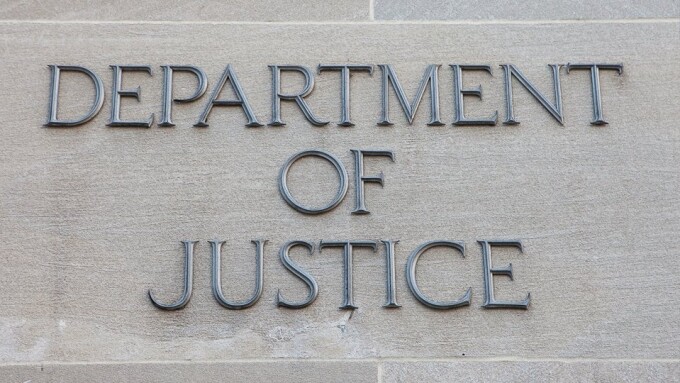WASHINGTON — Justice Department attorneys on Thursday said that the Woodhull Freedom Foundation along with other plaintiffs seeking to challenge the legal merits of FOSTA lack standing in their case and that the case should be dismissed.
The Justice Department today filed its opposition to the plaintiffs’ motion for preliminary injunction and its motion to dismiss the complaint in its entirety.
FOSTA, known formally as the Allow States and Victims to Fight Online Sex Trafficking Act, brings new tools for law enforcement, including the ability to bring criminal charges against the operators of sites that facilitate prostitution as it amends Section 230 of the Communications Decency Act, which provided companies immunity from most liability for publishing third-party content. The act allows for civil claims, as well.
Besides Woodhull Freedom Foundation, plaintiffs include the Human Rights Watch, Eric Koszyk, Alex Andrews and the Internet Archive.
Earlier this month, the plaintiffs filed a pre-enforcement challenge to FOSTA, seeking to have the act declared unconstitutional facially and as applied under the First and Fifth Amendments.
“All five named plaintiffs lack standing to bring this pre-enforcement challenge because the assertions in plaintiffs’ complaint fail to establish a credible threat of prosecution based on constitutionally protected activity,” Justice Department attorneys wrote in a brief to the court today.
“Simply put, the case or controversy requirement of Article III [establishing the judicial branch] is not met,” Justice Department attorneys wrote. “Further, even if plaintiffs could establish standing, they cannot demonstrate a substantial likelihood of success because they have failed to set forth any claims upon which relief can be granted.
“Therefore, this is not a case that allows the court to award the equitable remedy plaintiffs demand and dismissal is appropriate.”
Even if the plaintiffs did not lack standing, the Justice Department said, they would be unlikely to succeed on First Amendment claims.
“As an initial matter, plaintiffs’ First Amendment claims are unlikely to succeed because FOSTA does not criminalize protected speech. For First Amendment protections to trigger, a challenged statute must infringe on protected speech,” Justice Department attorneys wrote.
“Plaintiffs’ overbreadth claim is also particularly unlikely to succeed because even if FOSTA reached some protected speech, its plainly legitimate sweep is vast, and it therefore could not be deemed substantially overbroad. Under the overbreadth doctrine a defendant being prosecuted for speech or expressive conduct may challenge the law on its face if it reaches protected expression, even when that person’s activities are not protected by the First Amendment.”
Justice Department attorneys wrote that the plaintiffs make no claim whatsoever that FOSTA reaches more protected speech than unprotected speech.
“Certainly, FOSTA can be validly applied to a broad sweep of conduct involving knowing sex trafficking or where there is intent to promote or facilitate illegal prostitution, and the First Amendment would not be implicated at all. It cannot be said, therefore, that there are no valid applications, nor that there is substantial overbreadth sufficient to require facial invalidation.
“With respect to Plaintiffs’ claims that FOSTA fails to meet strict scrutiny, they again fail to state a claim on which relief can be granted. Plaintiffs argue that ‘FOSTA fails strict scrutiny because the law does not directly advance the government’s objective,’ and ‘has made it more difficult for law enforcement to investigate trafficking, and hindered operations of antitrafficking organizations.’ In support of this, they cite to a single article written prior to the passage of FOSTA.
“Contrary to plaintiffs’ allegations, FOSTA advances an important government interest. According to the Human Trafficking Institute, almost 85 percent of federal sex trafficking prosecutions in fiscal year 2016 and 2017 involved online advertising. And the allegations in the prosecution of the officers and employees of Backpage.com illustrate the extensive criminal conduct that can take place when websites intentionally facilitate prostitution.
“In short, FOSTA addresses a clearly established criminal problem.”
The government also stated in the motion to dismiss that the plaintiffs’ claims that FOSTA is not narrowly tailored also are baseless.
“Sex work, by definition, is a commercial activity, and for the most part in the U.S. is an illegal activity. The First Amendment does not protect speech promoting illegal acts. Plaintiffs are also wrong that FOSTA ‘criminalizes speech that furthers public health and welfare goals such as provision of health and educational resources to consensual, adult sex workers, as well as advocacy for the decriminalization of sex work.”
Finally, the government said that plaintiffs’ complaints about the criminal provisions in FOSTA are circular.
“According to them, the criminal provisions are not narrowly tailored because federal law already prohibits sex trafficking. Plaintiffs fail to state a claim when they argue that FOSTA’s criminal laws are infirm because there are already criminal laws in place.”
Woodhull and other plaintiffs are scheduled to reply to the government's response by 6 p.m. on Tuesday.
U.S. District Judge Richard Leon will hear the motion for preliminary injunction on Thursday at 4 p.m., in his courtroom at U.S. District Court in the District of Columbia.








